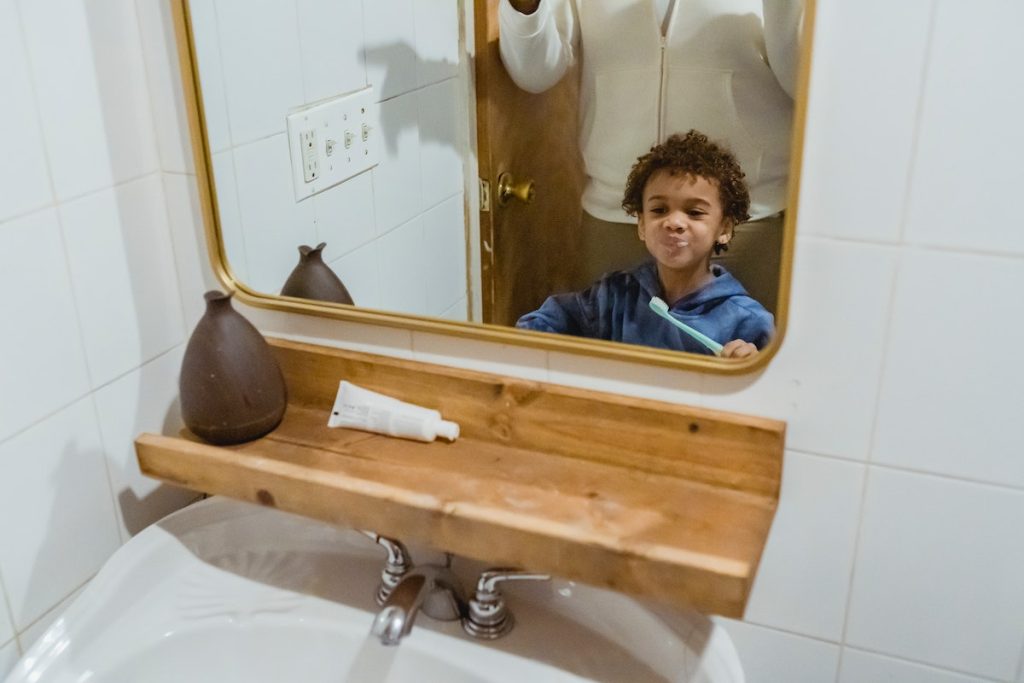Most babies start to get their first teeth around six months old, although some may start a little earlier or a little later. The two front teeth at the bottom are usually the first ones to come in, followed by the front teeth at the top. After that, babies will start getting molars and canines. By the time they’re three years old, most children will have a full set of baby teeth.
Although they eventually fall out, baby teeth are important for chewing and speaking correctly. They also help to hold space in the jaw for adult teeth. As a result, it’s important to take good care of baby teeth and start healthy habits early. Here are three things you can do to care for your child’s teeth when they come in:
1. Clean their teeth twice a day.
You may not realize it, but your children’s teeth are under constant attack. Every time they eat or drink, acids and sugars come into contact with their teeth, leading to the formation of plaque. Plaque that remains unremoved will eventually harden into tartar which can only be removed by a dentist.
That’s why it’s so important to clean your children’s teeth twice a day—once in the morning and once at night. By taking this simple step, you can help to protect their teeth from cavities and other problems. You can use a soft baby toothbrush or a washcloth. Just be sure to use water rather than toothpaste, as young children may be unable to spit it out effectively.

If your child is fuzzy during teeth cleaning time, try making it into a game. Babies and toddlers like music and rhymes, so try singing a little song while you clean their teeth. For older children, let them choose their own toothbrush and toothpaste (with your supervision, of course). You can also brush your teeth at the same time to show them how it’s done.
2. Avoid giving your child sugary drinks.
When your child’s teeth start to come in, it’s tempting to give them something sweet to eat or drink. However, sugary foods and drinks can actually damage their developing teeth. The sugar interacts with the bacteria in their mouth, causing plaque to form. This can lead to tooth decay and other problems.
Additionally, sugary drinks can cause staining on the teeth. To avoid these problems, it’s best to avoid giving your child sugary food and drinks. This includes juice, soda, and even some baby formulas. Instead, give them water or milk to drink and offer healthy snacks such as fruits and vegetables.
Moreover, if your child falls asleep with a bottle in their mouth, the sugary liquids can pool around their teeth and cause cavities. So, it’s best to avoid this by putting your child to bed with a sippy cup of water instead. This will help to keep their teeth healthy and free of decay.
3. Schedule a visit to the dentist.
As a parent, you might be wondering when to schedule your child’s first dental visit. The American Academy of Pediatrics recommends that children see a dentist within six months of getting their first tooth. However, this isn’t always possible, and some parents wait until all of their child’s teeth have come in before making an appointment.
There are a few things to keep in mind when deciding when to take your child to the dentist.
- Regular dental visits can help to prevent problems like cavities and gum disease.
- Early dental visits can help your child get used to going to the dentist, making it less likely that they’ll experience anxiety or fear later on.
- Your dentist can provide you with important information about how to care for your child’s teeth.
Additionally, here are some ways you can make the trip to the dentist fun and engaging for your child or toddler:
- Bring along a favorite toy or stuffed animal.
- Read a dental-themed book together before the appointment.
- Let your child choose a “prize” from the dentist’s office after the visit.
- Allow your child to choose a new toothbrush to take home.
The most important thing is to ensure that your child’s teeth are taken care of, so don’t hesitate to schedule a dental visit if you think it’s necessary.
Closing thoughts
These are just some of the things to do once your child’s teeth come in. You can also talk to your dentist about other ways to keep your child’s smile healthy and bright. Remember, starting early habits ensure that they are on the right health path until adulthood.
